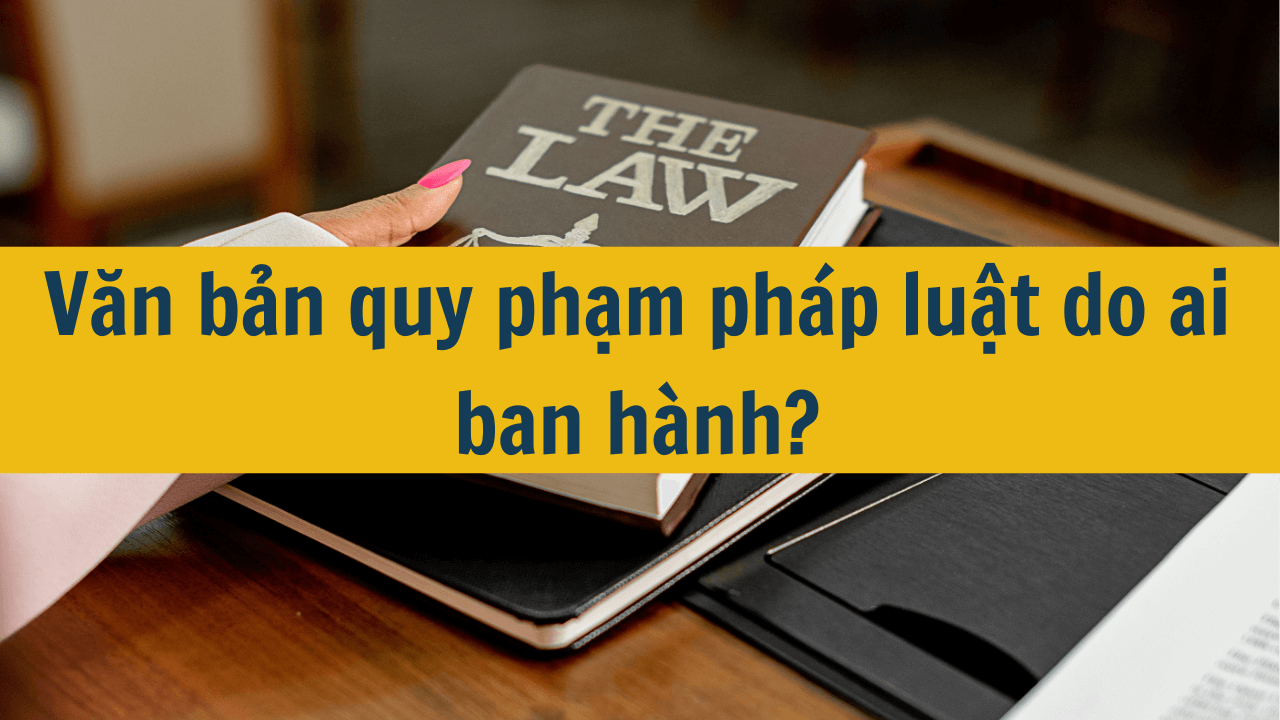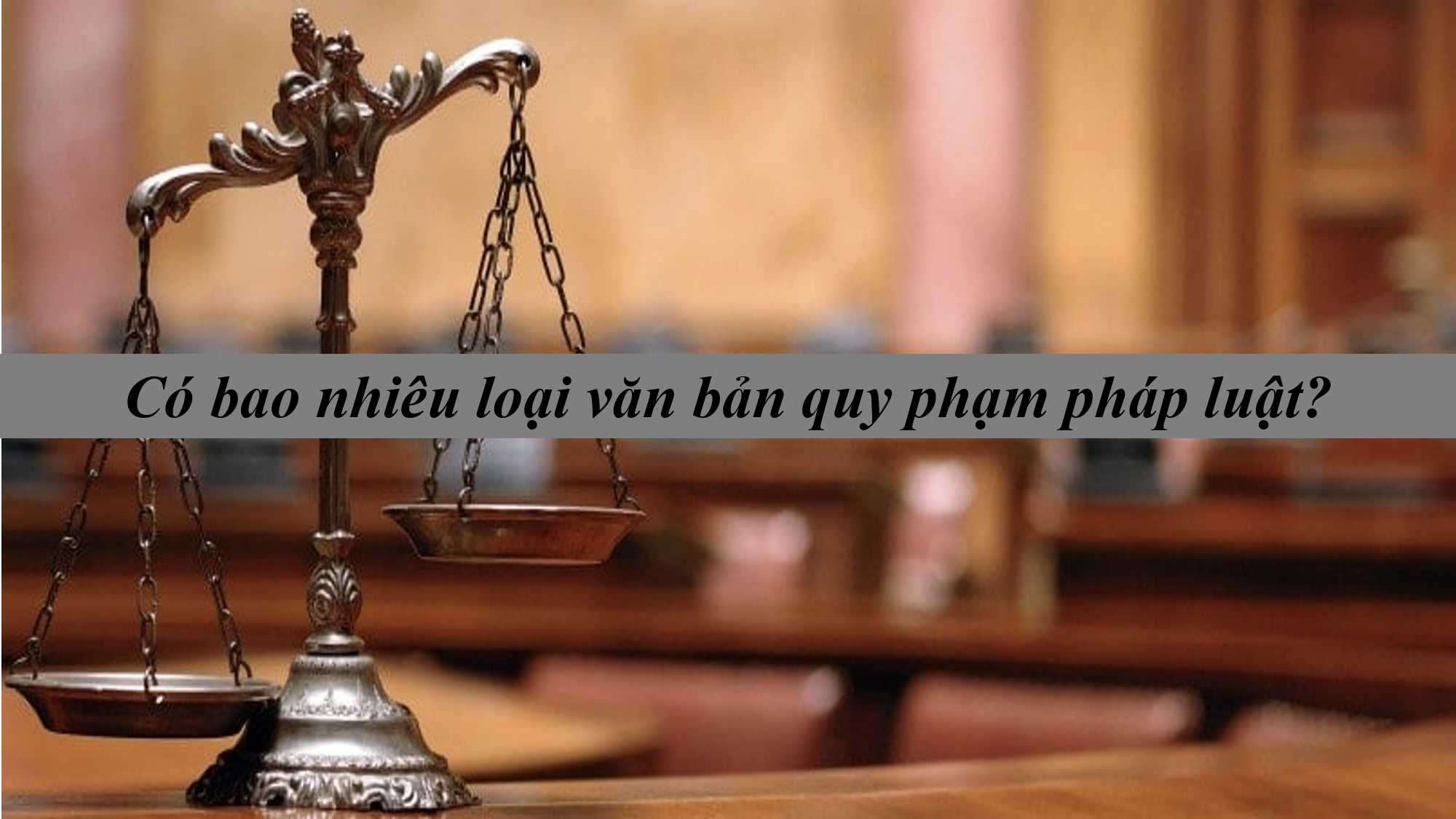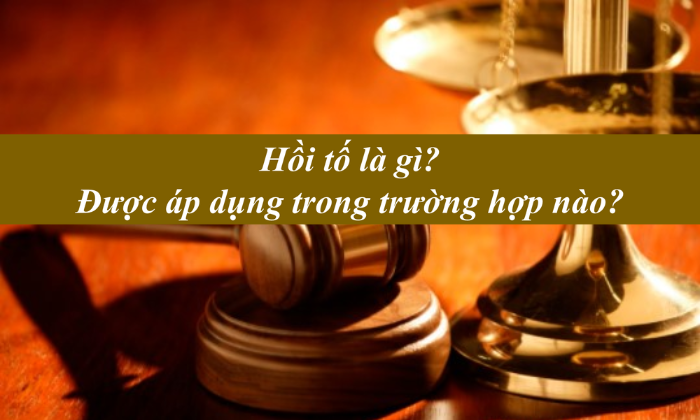 Tìm kiếm
Tìm kiếm
Chương II Luật ban hành văn bản quy phạm pháp luật 2015: Thẩm quyền ban hành, nội dung văn bản quy phạm pháp luật
| Số hiệu: | 80/2015/QH13 | Loại văn bản: | Luật |
| Nơi ban hành: | Quốc hội | Người ký: | Nguyễn Sinh Hùng |
| Ngày ban hành: | 22/06/2015 | Ngày hiệu lực: | 01/07/2016 |
| Ngày công báo: | 28/07/2015 | Số công báo: | Từ số 867 đến số 868 |
| Lĩnh vực: | Bộ máy hành chính | Tình trạng: | Còn hiệu lực |
TÓM TẮT VĂN BẢN
Văn bản tiếng việt
Văn bản tiếng anh
1. Quốc hội ban hành luật để quy định:
a) Tổ chức và hoạt động của Quốc hội, Chủ tịch nước, Chính phủ, Tòa án nhân dân, Viện kiểm sát nhân dân, Hội đồng bầu cử quốc gia, Kiểm toán nhà nước, chính quyền địa phương, đơn vị hành chính - kinh tế đặc biệt và cơ quan khác do Quốc hội thành lập;
b) Quyền con người, quyền và nghĩa vụ cơ bản của công dân mà theo Hiến pháp phải do luật định; việc hạn chế quyền con người, quyền công dân; tội phạm và hình phạt;
c) Chính sách cơ bản về tài chính, tiền tệ quốc gia, ngân sách nhà nước; quy định, sửa đổi hoặc bãi bỏ các thứ thuế;
d) Chính sách cơ bản về văn hóa, giáo dục, y tế, khoa học, công nghệ, môi trường;
đ) Quốc phòng, an ninh quốc gia;
e) Chính sách dân tộc, chính sách tôn giáo của Nhà nước;
g) Hàm, cấp trong lực lượng vũ trang nhân dân; hàm, cấp ngoại giao; hàm, cấp nhà nước khác; huân chương, huy chương và danh hiệu vinh dự nhà nước;
h) Chính sách cơ bản về đối ngoại;
i) Trưng cầu ý dân;
k) Cơ chế bảo vệ Hiến pháp;
l) Vấn đề khác thuộc thẩm quyền của Quốc hội.
2. Quốc hội ban hành nghị quyết để quy định:
a) Tỷ lệ phân chia các khoản thu và nhiệm vụ chi giữa ngân sách trung ương và ngân sách địa phương;
b) Thực hiện thí điểm một số chính sách mới thuộc thẩm quyền quyết định của Quốc hội nhưng chưa có luật điều chỉnh hoặc khác với quy định của luật hiện hành;
c) Tạm ngưng hoặc kéo dài thời hạn áp dụng toàn bộ hoặc một phần luật, nghị quyết của Quốc hội đáp ứng các yêu cầu cấp bách về phát triển kinh tế - xã hội, bảo đảm quyền con người, quyền công dân;
d) Quy định về tình trạng khẩn cấp, các biện pháp đặc biệt khác bảo đảm quốc phòng, an ninh quốc gia;
đ) Đại xá;
e) Vấn đề khác thuộc thẩm quyền của Quốc hội.
1. Ủy ban thường vụ Quốc hội ban hành pháp lệnh để quy định những vấn đề được Quốc hội giao.
2. Ủy ban thường vụ Quốc hội ban hành nghị quyết để quy định:
a) Giải thích Hiến pháp, luật, pháp lệnh;
b) Tạm ngưng hoặc kéo dài thời hạn áp dụng toàn bộ hoặc một phần pháp lệnh, nghị quyết của Ủy ban thường vụ Quốc hội đáp ứng các yêu cầu cấp bách về phát triển kinh tế - xã hội;
c) Bãi bỏ pháp lệnh, nghị quyết của Ủy ban thường vụ Quốc hội; trường hợp bãi bỏ pháp lệnh thì Ủy ban thường vụ Quốc hội có trách nhiệm báo cáo Quốc hội tại kỳ họp gần nhất;
d) Tổng động viên hoặc động viên cục bộ; ban bố, bãi bỏ tình trạng khẩn cấp trong cả nước hoặc ở từng địa phương;
đ) Hướng dẫn hoạt động của Hội đồng nhân dân;
e) Vấn đề khác thuộc thẩm quyền của Ủy ban thường vụ Quốc hội.
Chủ tịch nước ban hành lệnh, quyết định để quy định:
1. Tổng động viên hoặc động viên cục bộ, công bố, bãi bỏ tình trạng khẩn cấp căn cứ vào nghị quyết của Ủy ban thường vụ Quốc hội; công bố, bãi bỏ tình trạng khẩn cấp trong cả nước hoặc ở từng địa phương trong trường hợp Ủy ban thường vụ Quốc hội không thể họp được.
2. Vấn đề khác thuộc thẩm quyền của Chủ tịch nước.
Ủy ban thường vụ Quốc hội hoặc Chính phủ và Đoàn Chủ tịch Ủy ban trung ương Mặt trận Tổ quốc Việt Nam ban hành nghị quyết liên tịch để quy định chi tiết những vấn đề được luật giao.
Chính phủ ban hành nghị định để quy định:
1. Chi tiết điều, khoản, điểm được giao trong luật, nghị quyết của Quốc hội, pháp lệnh, nghị quyết của Ủy ban thường vụ Quốc hội, lệnh, quyết định của Chủ tịch nước.
2. Các biện pháp cụ thể để tổ chức thi hành Hiến pháp, luật, nghị quyết của Quốc hội, pháp lệnh, nghị quyết của Ủy ban thường vụ Quốc hội, lệnh, quyết định của Chủ tịch nước; các biện pháp để thực hiện chính sách kinh tế - xã hội, quốc phòng, an ninh, tài chính, tiền tệ, ngân sách, thuế, dân tộc, tôn giáo, văn hóa, giáo dục, y tế, khoa học, công nghệ, môi trường, đối ngoại, chế độ công vụ, cán bộ, công chức, viên chức, quyền, nghĩa vụ của công dân và các vấn đề khác thuộc thẩm quyền quản lý, điều hành của Chính phủ; những vấn đề liên quan đến nhiệm vụ, quyền hạn của từ hai bộ, cơ quan ngang bộ trở lên; nhiệm vụ, quyền hạn, tổ chức bộ máy của các bộ, cơ quan ngang bộ, cơ quan thuộc Chính phủ và các cơ quan khác thuộc thẩm quyền của Chính phủ.
3. Vấn đề cần thiết thuộc thẩm quyền của Quốc hội, Ủy ban thường vụ Quốc hội nhưng chưa đủ điều kiện xây dựng thành luật hoặc pháp lệnh để đáp ứng yêu cầu quản lý nhà nước, quản lý kinh tế, quản lý xã hội. Trước khi ban hành nghị định này phải được sự đồng ý của Ủy ban thường vụ Quốc hội.
Thủ tướng Chính phủ ban hành quyết định để quy định:
1. Biện pháp lãnh đạo, điều hành hoạt động của Chính phủ và hệ thống hành chính nhà nước từ trung ương đến địa phương, chế độ làm việc với các thành viên Chính phủ, chính quyền địa phương và các vấn đề khác thuộc thẩm quyền của Thủ tướng Chính phủ.
2. Biện pháp chỉ đạo, phối hợp hoạt động của các thành viên Chính phủ; kiểm tra hoạt động của các bộ, cơ quan ngang bộ, cơ quan thuộc Chính phủ, chính quyền địa phương trong việc thực hiện đường lối, chủ trương của Đảng, chính sách, pháp luật của Nhà nước.
Hội đồng Thẩm phán Tòa án nhân dân tối cao ban hành nghị quyết để hướng dẫn việc áp dụng thống nhất pháp luật trong xét xử thông qua tổng kết việc áp dụng pháp luật, giám đốc việc xét xử.
Chánh án Tòa án nhân dân tối cao ban hành thông tư để thực hiện việc quản lý các Tòa án nhân dân và Tòa án quân sự về tổ chức và những vấn đề khác được Luật tổ chức Tòa án nhân dân và luật khác có liên quan giao.
Viện trưởng Viện kiểm sát nhân dân tối cao ban hành thông tư để quy định những vấn đề được Luật tổ chức Viện kiểm sát nhân dân và luật khác có liên quan giao.
Bộ trưởng, Thủ trưởng cơ quan ngang bộ ban hành thông tư để quy định:
1. Chi tiết điều, khoản, điểm được giao trong luật, nghị quyết của Quốc hội, pháp lệnh, nghị quyết của Ủy ban thường vụ Quốc hội, lệnh, quyết định của Chủ tịch nước, nghị định của Chính phủ, quyết định của Thủ tướng Chính phủ.
Chánh án Tòa án nhân dân tối cao và Viện trưởng Viện kiểm sát nhân dân tối cao; Bộ trưởng, Thủ trưởng cơ quan ngang bộ và Chánh án Tòa án nhân dân tối cao, Viện trưởng Viện kiểm sát nhân dân tối cao ban hành thông tư liên tịch để quy định về việc phối hợp giữa các cơ quan này trong việc thực hiện trình tự, thủ tục tố tụng.
Tổng Kiểm toán nhà nước ban hành quyết định để quy định chuẩn mực kiểm toán nhà nước, quy trình kiểm toán, hồ sơ kiểm toán.
Hội đồng nhân dân cấp tỉnh ban hành nghị quyết để quy định:
1. Chi tiết điều, khoản, điểm được giao trong văn bản quy phạm pháp luật của cơ quan nhà nước cấp trên.
2. Chính sách, biện pháp nhằm bảo đảm thi hành Hiến pháp, luật, văn bản quy phạm pháp luật của cơ quan nhà nước cấp trên.
3. Biện pháp nhằm phát triển kinh tế - xã hội, ngân sách, quốc phòng, an ninh ở địa phương.
4. Biện pháp có tính chất đặc thù phù hợp với điều kiện phát triển kinh tế - xã hội của địa phương.
Ủy ban nhân dân cấp tỉnh ban hành quyết định để quy định:
1. Chi tiết điều, khoản, điểm được giao trong văn bản quy phạm pháp luật của cơ quan nhà nước cấp trên.
2. Biện pháp thi hành Hiến pháp, luật, văn bản của cơ quan nhà nước cấp trên, nghị quyết của Hội đồng nhân dân cùng cấp về phát triển kinh tế - xã hội, ngân sách, quốc phòng, an ninh ở địa phương.
3. Biện pháp thực hiện chức năng quản lý nhà nước ở địa phương.
Hội đồng nhân dân ở đơn vị hành chính - kinh tế đặc biệt ban hành nghị quyết, Ủy ban nhân dân ở đơn vị hành chính - kinh tế đặc biệt ban hành quyết định theo quy định của Luật này và các luật khác có liên quan.
Hội đồng nhân dân cấp huyện, cấp xã ban hành nghị quyết, Ủy ban nhân dân cấp huyện, cấp xã ban hành quyết định để quy định những vấn đề được luật giao.
THE POWER TO PROMULGATE LEGISLATIVE DOCUMENTS, CONTENTS OF LEGISLATIVE DOCUMENTS
Article 15. Laws, resolutions of the National Assembly
1. The National Assembly shall promulgate laws to prescribe:
a) Organizational structure and operation the National Assembly, the President, the Government, People’s Courts, the People’s Procuracies, National Election Council, State Audit Office of Vietnam, local governments, administrative - economic units, and other agencies established by the National Assembly;
b) Human rights, basic rights and obligations of citizens that must be prescribed by law according to the Constitution, restrictions on human rights and citizenship; crimes and punishments;
c) Basic policies on national finance and state budget; imposition, adjustment, or cancellation of taxes;
d) Basic policies on culture, education, healthcare, science, technology, and environment;
dd) National defense and security;
e) Policies on ethnics and religions of the State;
g) Ranks in the People’s armed forces; diplomatic ranks; other state ranks; medals and honorable titles of the State;
h) Basic diplomatic policies;
i) Referendum;
k) Mechanism for protection of the Constitution;
l) Other issues within the competence of the National Assembly.
2. The National Assembly shall promulgate resolutions to prescribe:
a) Ratio of distribution of revenues and obligatory expenditures between central government budget and local government budgets;
b) Pilot implementation of some new policies within the competence to decide of the National Assembly that are not regulated by any law or different from applicable regulations of law;
c) Suspend or extend the implementation period of the whole or part of a law or resolution of the National Assembly in order to meet urgent requirements for socio-economic development, assurance of human rights and citizenship;
d) Prescribe states of emergency and other special measures for ensuring national defense and security;
dd) Declare amnesty;
e) Decide issues within the competence of the National Assembly.
Article 16. Ordinances and resolutions of Standing Committee of the National Assembly
1. Standing Committee of the National Assembly shall promulgate ordinances to decide the issues assigned by the National Assembly.
2. Standing Committee of the National Assembly shall promulgate resolutions to prescribe:
a) Explain the Constitution, laws, and ordinances;
b) Suspend or extend the implementation period of the whole or part of an ordinance or resolution promulgated by Standing Committee of the National Assembly to meet urgent requirements for socio-economic development;
c) Annul ordinances and resolutions promulgated by Standing Committee of the National Assembly; in case an ordinance is annulled, Standing Committee of the National Assembly must submit a report to the National Assembly at the nearest meeting;
d) Declare full or partial mobilization; declare, cancel states of emergency nationwide or locally;
dd) Provide instructions on operation of the People’s Councils;
e) Decide other issues within the competence of Standing Committee of the National Assembly.
Article 17. Orders and decisions of the President.
The President shall issue orders and decisions to:
1. Declare full or partial mobilization; declare, cancel states of emergency according to resolutions of Standing Committee of the National Assembly; declare, cancel states of emergency nationwide or locally in case Standing Committee of the National Assembly is not able to hold a meeting;
2. Decide other issues within the competence of the President
Article 18. Joint resolutions between Standing Committee of the National Assembly or the Government and Management Board of Central Committee Vietnamese Fatherland Front
Committee of the National Assembly or the Government and Management Board of Central Committee Vietnamese Fatherland Front shall promulgate joint resolutions to specify the issues assigned by law.
Article 19. Decrees of the government
The Government shall promulgate decrees to prescribe:
1. Specific guidelines for articles, clauses, and paragraphs assigned in the laws and resolutions of the National Assembly, ordinances and resolutions of Standing Committee of the National Assembly, orders and decisions of the President;
2. Specific measures for organizing implementation of the Constitutions, laws and resolutions of the National Assembly, ordinances and resolutions of Standing Committee of the National Assembly, orders and decisions of the President; measures for implementation of socio-economic policies, policies on national defense and security, finance, budget, taxation, ethnics, religions, culture, education, healthcare, science and technology, environment, diplomacy, officials and civil servants, rights and obligations of citizens, and other issues within the management of the Government; issues related to duties and entitlements of two or more Ministries, ministerial agencies; duties, entitlements, and organizational structure of Ministries, ministerial agencies, Governmental agencies, and other agencies under the management of the Government;
3. Other necessary issues within the competence of the National Assembly or Standing Committee of the National Assembly but are yet to be made into a law or ordinance. Consent of Standing Committee of the National Assembly must be obtained before this type of decree is promulgated.
Article 20. Decision of the Prime Minister
The Prime Minister shall promulgate decisions to prescribe:
1. Operating method of the government and state administration system from central to local government, regulations on working with members of the Government, local governments, and other issues within the competence of the Prime Minister;
2. Measures for providing guidelines and coordinating members of the Government; inspecting adherence to policies of Communist Party, policies and laws of the State by Ministries, ministerial agencies, Governmental agencies, and local governments.
Article 21. Resolutions of Judge Council of the People’s Supreme Court
Judge Council of the People’s Supreme Court shall promulgate resolutions to provide guidelines for uniform application of law to adjudication by summarizing application of laws and supervising adjudication.
Article 22. Circulars of executive judge of the People’s Supreme Court
executive judge of the People’s Supreme Court shall promulgate circulars to manage People’s Courts and martial courts in terms of organizational structure and other issues assigned by the Law of Organizational structure of People’s Courts and relevant laws.
Article 23. Circulars of Chief Procurator of the Supreme People’s Procuracy
Chief Procurator of the Supreme People’s Procuracy shall promulgate circulars elaborating issues assigned by the Law of Organizational structure of the People’s Procuracies and relevant laws.
Article 24. Circulars of Ministers and Heads of ministerial agencies
Ministers and Heads of ministerial agencies promulgate Circulars to prescribe:
1. Specific guidelines for articles, clauses, and paragraphs assigned in the laws and resolutions of the National Assembly, ordinances and resolutions of Standing Committee of the National Assembly, orders and decisions of the President, decrees of the Government, and decisions of the Prime Minister;
2. Measures for performing their state management functions.
Article 25. Joint Circulars between executive judge of the People’s Supreme Court and the Chief Procurator of the Supreme People’s Procuracy; Joint Circulars between Ministers, Heads of ministerial agencies and executive judge of the People’s Supreme Court
Executive judge of the People’s Supreme Court and the Chief Procurator of the Supreme People’s Procuracy; Ministers, Heads of ministerial agencies and Executive judge of the People’s Supreme Court and the Chief Procurator of the Supreme People’s Procuracy shall promulgate Joint Circulars to specify their cooperation in implementation of proceedings
Article 26. Decisions of State Auditor General
State Auditor General shall promulgate decisions to prescribe state audit standards, audit procedures, and audit documents.
Article 27. Resolutions of the People’s Councils of provinces
The People’s Councils of provinces shall promulgate resolutions to prescribe:
1. Specific guidelines for articles, clauses, and paragraphs assigned in the legislative documents promulgated by superior agencies;
2. Policies, measures for ensuring implementation of the Constitution, laws, and legislative documents promulgated by superior agencies;
3. Measures for socio-economic development, local budget, and national defense and security;
4. Special measures that suit the local socio-economic development.
Article 28. Decisions of the People’s Committees of provinces.
The People’s Committees of provinces shall promulgate decisions to prescribe:
1. Specific guidelines for articles, clauses, and paragraphs assigned in the legislative documents promulgated by superior agencies;
2. Measures for implementation of the Constitutions, laws, and legislative documents promulgated by superior agencies, resolutions of the People’s Councils at the same administrative level on socio-economic development, local budget, and national defense and security;
3. Measures for performing their state management functions locally.
Article 29. Legislative documents promulgated by local governments in administrative - economic units.
The People’s Councils in administrative - economic units shall promulgate resolutions; the People’s Committees in administrative - economic units shall promulgate decisions in accordance with this Law and relevant laws.
Article 30. Resolutions of the People’s Councils of districts and commune; decisions of the People’s Committees of districts and commune
The People’s Councils of districts and commune shall promulgate resolutions; the People’s Committees of districts and commune shall promulgate decisions to prescribe the issues assigned by laws.
Văn bản liên quan
Cập nhật
Điều 4. Hệ thống văn bản quy phạm pháp luật
Điều 6. Tham gia góp ý kiến xây dựng văn bản quy phạm pháp luật
Điều 8. Ngôn ngữ, kỹ thuật văn bản quy phạm pháp luật
Điều 12. Sửa đổi, bổ sung, thay thế, bãi bỏ hoặc đình chỉ việc thi hành văn bản quy phạm pháp luật
Điều 14. Những hành vi bị nghiêm cấm
Điều 30. Nghị quyết của Hội đồng nhân dân, quyết định của Ủy ban nhân dân cấp huyện, cấp xã
Điều 33. Kiến nghị về luật, pháp lệnh, đề nghị xây dựng luật, pháp lệnh của đại biểu Quốc hội
Điều 37. Hồ sơ đề nghị xây dựng luật, pháp lệnh, văn bản kiến nghị về luật, pháp lệnh
Điều 47. Thẩm tra đề nghị xây dựng luật, pháp lệnh, kiến nghị về luật, pháp lệnh
Điều 48. Lập dự kiến chương trình xây dựng luật, pháp lệnh
Điều 49. Trình tự xem xét, thông qua dự kiến chương trình xây dựng luật, pháp lệnh
Điều 50. Triển khai thực hiện chương trình xây dựng luật, pháp lệnh
Điều 55. Nhiệm vụ của cơ quan, tổ chức chủ trì soạn thảo luật, pháp lệnh, nghị quyết
Điều 57. Lấy ý kiến đối với dự án luật, pháp lệnh, dự thảo nghị quyết
Điều 58. Thẩm định dự án luật, pháp lệnh, dự thảo nghị quyết do Chính phủ trình
Điều 59. Hồ sơ dự án luật, pháp lệnh, dự thảo nghị quyết trình Chính phủ
Mục 3. THẨM TRA DỰ ÁN LUẬT, PHÁP LỆNH, DỰ THẢO NGHỊ QUYẾT
Điều 64. Hồ sơ và thời hạn gửi hồ sơ dự án luật, pháp lệnh, dự thảo nghị quyết để thẩm tra
Điều 65. Nội dung thẩm tra dự án luật, pháp lệnh, dự thảo nghị quyết
Điều 74. Trình tự xem xét, thông qua dự án luật, dự thảo nghị quyết tại một kỳ họp Quốc hội
Điều 75. Trình tự xem xét, thông qua dự án luật, dự thảo nghị quyết tại hai kỳ họp Quốc hội
Điều 76. Trình tự xem xét, thông qua dự án luật tại ba kỳ họp Quốc hội
Điều 84. Đề nghị xây dựng nghị định
Điều 85. Trách nhiệm của cơ quan đề nghị xây dựng nghị định
Điều 87. Hồ sơ đề nghị xây dựng nghị định
Điều 88. Thẩm định đề nghị xây dựng nghị định
Điều 89. Chính phủ xem xét, thông qua đề nghị xây dựng nghị định
Điều 90. Nhiệm vụ của cơ quan chủ trì soạn thảo nghị định
Điều 91. Lấy ý kiến đối với dự thảo nghị định
Điều 92. Thẩm định dự thảo nghị định
Điều 93. Hồ sơ dự thảo nghị định trình Chính phủ
Điều 95. Xin ý kiến Ủy ban thường vụ Quốc hội về việc ban hành nghị định
Điều 98. Thẩm định dự thảo quyết định của Thủ tướng Chính phủ
Điều 102. Thẩm định dự thảo thông tư
Điều 103. Hồ sơ dự thảo thông tư trình Bộ trưởng, Thủ trưởng cơ quan ngang bộ
Điều 109. Xây dựng, ban hành nghị quyết liên tịch
Điều 110. Xây dựng, ban hành thông tư liên tịch
Điều 111. Đề nghị xây dựng nghị quyết
Điều 113. Lấy ý kiến về đề nghị xây dựng nghị quyết
Điều 114. Hồ sơ đề nghị xây dựng nghị quyết
Điều 115. Thẩm định đề nghị xây dựng nghị quyết do Ủy ban nhân dân cấp tỉnh trình
Điều 116. Thông qua chính sách trong đề nghị xây dựng nghị quyết
Điều 117. Trình đề nghị xây dựng nghị quyết
Điều 119. Nhiệm vụ của cơ quan, tổ chức chủ trì soạn thảo nghị quyết
Điều 121. Thẩm định dự thảo nghị quyết do Ủy ban nhân dân cấp tỉnh trình
Điều 122. Hồ sơ dự thảo nghị quyết trình Ủy ban nhân dân cấp tỉnh
Điều 124. Thẩm tra dự thảo nghị quyết của Hội đồng nhân dân cấp tỉnh
Điều 128. Soạn thảo quyết định của Ủy ban nhân dân cấp tỉnh
Điều 130. Thẩm định dự thảo quyết định của Ủy ban nhân dân cấp tỉnh
Điều 131. Hồ sơ dự thảo quyết định trình Ủy ban nhân dân cấp tỉnh
Điều 134. Thẩm định dự thảo nghị quyết của Hội đồng nhân dân cấp huyện
Điều 139. Thẩm định dự thảo quyết định của Ủy ban nhân dân cấp huyện
Điều 140. Hồ sơ dự thảo quyết định trình Ủy ban nhân dân cấp huyện
Điều 151. Thời điểm có hiệu lực của văn bản quy phạm pháp luật
Điều 153. Ngưng hiệu lực văn bản quy phạm pháp luật
Điều 78. Trách nhiệm của chủ đầu tư
Điều 81. Trách nhiệm của tổ thẩm định
Mục 1. LẬP CHƯƠNG TRÌNH XÂY DỰNG LUẬT, PHÁP LỆNH
Mục 2. SOẠN THẢO LUẬT, PHÁP LỆNH, NGHỊ QUYẾT
Điều 58. Thẩm định dự án luật, pháp lệnh, dự thảo nghị quyết do Chính phủ trình
Điều 98. Thẩm định dự thảo quyết định của Thủ tướng Chính phủ
Điều 102. Thẩm định dự thảo thông tư
Điều 130. Thẩm định dự thảo quyết định của Ủy ban nhân dân cấp tỉnh
Điều 81. Trách nhiệm của tổ thẩm định
Điều 27. Nghị quyết của Hội đồng nhân dân cấp tỉnh
Điều 28. Quyết định của Ủy ban nhân dân cấp tỉnh
Điều 30. Nghị quyết của Hội đồng nhân dân, quyết định của Ủy ban nhân dân cấp huyện, cấp xã
Mục 1. LẬP CHƯƠNG TRÌNH XÂY DỰNG LUẬT, PHÁP LỆNH
Mục 2. SOẠN THẢO LUẬT, PHÁP LỆNH, NGHỊ QUYẾT
Điều 58. Thẩm định dự án luật, pháp lệnh, dự thảo nghị quyết do Chính phủ trình
Điều 98. Thẩm định dự thảo quyết định của Thủ tướng Chính phủ
Điều 121. Thẩm định dự thảo nghị quyết do Ủy ban nhân dân cấp tỉnh trình
Điều 130. Thẩm định dự thảo quyết định của Ủy ban nhân dân cấp tỉnh
Điều 170. Rà soát, hệ thống hóa văn bản quy phạm pháp luật
Điều 171. Bảo đảm nguồn lực xây dựng, ban hành văn bản quy phạm pháp luật
Điều 78. Trách nhiệm của chủ đầu tư
Điều 81. Trách nhiệm của tổ thẩm định
Điều 9. Dịch văn bản quy phạm pháp luật ra tiếng dân tộc thiểu số, tiếng nước ngoài
Điều 10. Số, ký hiệu của văn bản quy phạm pháp luật
Điều 12. Sửa đổi, bổ sung, thay thế, bãi bỏ hoặc đình chỉ việc thi hành văn bản quy phạm pháp luật
Điều 20. Quyết định của Thủ tướng Chính phủ
Điều 27. Nghị quyết của Hội đồng nhân dân cấp tỉnh
Điều 28. Quyết định của Ủy ban nhân dân cấp tỉnh
Điều 30. Nghị quyết của Hội đồng nhân dân, quyết định của Ủy ban nhân dân cấp huyện, cấp xã
Mục 1. LẬP CHƯƠNG TRÌNH XÂY DỰNG LUẬT, PHÁP LỆNH
Điều 38. Trách nhiệm lập đề nghị xây dựng luật, pháp lệnh do Chính phủ trình
Điều 40. Trình Chính phủ đề nghị xây dựng luật, pháp lệnh do Chính phủ trình
Điều 42. Chỉnh lý và gửi hồ sơ đề nghị xây dựng luật, pháp lệnh do Chính phủ trình
Mục 2. SOẠN THẢO LUẬT, PHÁP LỆNH, NGHỊ QUYẾT
Điều 58. Thẩm định dự án luật, pháp lệnh, dự thảo nghị quyết do Chính phủ trình
Điều 92. Thẩm định dự thảo nghị định
Điều 98. Thẩm định dự thảo quyết định của Thủ tướng Chính phủ
Điều 102. Thẩm định dự thảo thông tư
Điều 121. Thẩm định dự thảo nghị quyết do Ủy ban nhân dân cấp tỉnh trình
Điều 127. Đề nghị xây dựng quyết định của Ủy ban nhân dân cấp tỉnh
Điều 130. Thẩm định dự thảo quyết định của Ủy ban nhân dân cấp tỉnh
Điều 134. Thẩm định dự thảo nghị quyết của Hội đồng nhân dân cấp huyện
Điều 139. Thẩm định dự thảo quyết định của Ủy ban nhân dân cấp huyện
Điều 150. Đăng Công báo văn bản quy phạm pháp luật
Điều 170. Rà soát, hệ thống hóa văn bản quy phạm pháp luật
Điều 171. Bảo đảm nguồn lực xây dựng, ban hành văn bản quy phạm pháp luật
Bài viết liên quan
Văn bản quy phạm pháp luật do ai ban hành?

Văn bản quy phạm pháp luật do ai ban hành?
Pháp luật được hiểu là một hệ thống các chuẩn mực chung về hành vi do Nhà nước xác lập, ban hành hoặc thừa nhận. Do đó pháp luật là công cụ không thể thiếu nhằm đảm bảo cho sự tồn tại, vận hành ổn định của xã hội. Hiện nay, quy định pháp luật sẽ được chứa đựng trong các văn bản quy phạm pháp luật theo từng lĩnh vực cụ thể vậy nên thẩm quyền văn hành các bản bản khác nhau cũng thuộc các cơ quan nhà nước khác nhau. 17/11/2024Thủ tướng Chính Phủ có thẩm quyền ban hành loại văn bản quy phạm pháp luật nào?

Thủ tướng Chính Phủ có thẩm quyền ban hành loại văn bản quy phạm pháp luật nào?
Theo quy định pháp luật, Thủ tướng Chính phú là người đứng đầu Chính phủ và hệ thống hành chính Nhà Nước. Từ đó, có thể thấy, Thủ tướng Chính phủ đóng một vai trò vô cùng quan trọng trong hoạt động quản lý hành chính Nhà Nước, đặc biệt là trong lĩnh vực ban hành văn bản quy phạm pháp luật. Vậy, Thủ tướng Chính phủ sẽ có thẩm quyền ban hành loại văn bản quy phạm pháp luật nào? Hãy cùng theo dõi bài viết sau để tìm được câu trả lời chính xác nhất. 10/11/2024Có bao nhiêu loại văn bản quy phạm pháp luật?

Có bao nhiêu loại văn bản quy phạm pháp luật?
Có bao nhiêu loại văn bản quy phạm pháp luật? 04/11/2024Hồi tố là gì? Được áp dụng trong trường hợp nào?

Hồi tố là gì? Được áp dụng trong trường hợp nào?
Hồi tố là gì? Được áp dụng trong trường hợp nào? 04/11/2024Văn bản quy phạm pháp luật là gì?


 Luật ban hành văn bản quy phạm pháp luật 2015 (Bản Word)
Luật ban hành văn bản quy phạm pháp luật 2015 (Bản Word)
 Luật ban hành văn bản quy phạm pháp luật 2015 (Bản Pdf)
Luật ban hành văn bản quy phạm pháp luật 2015 (Bản Pdf)